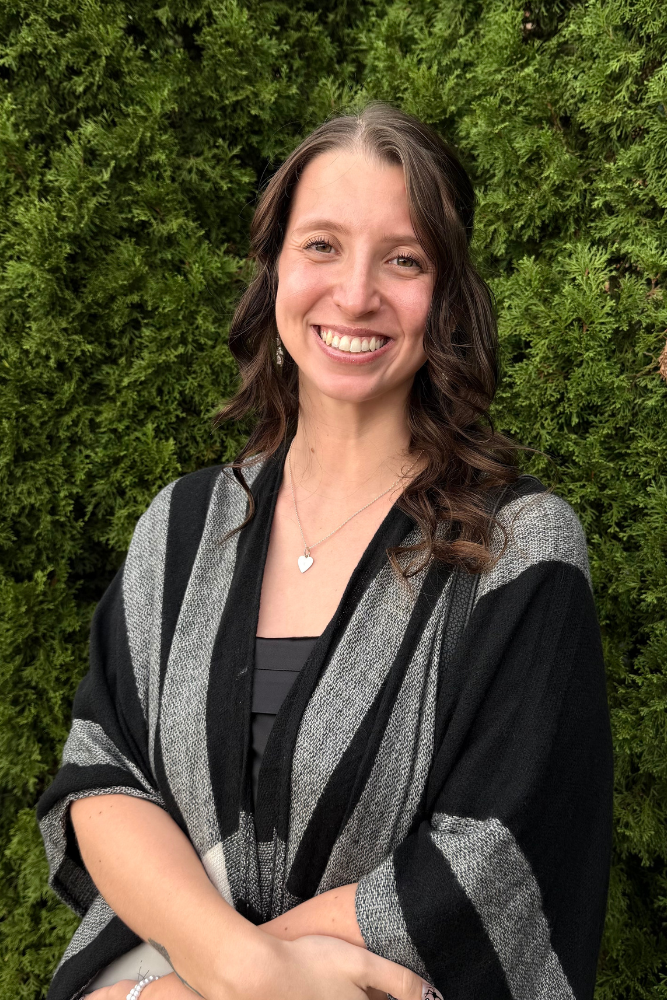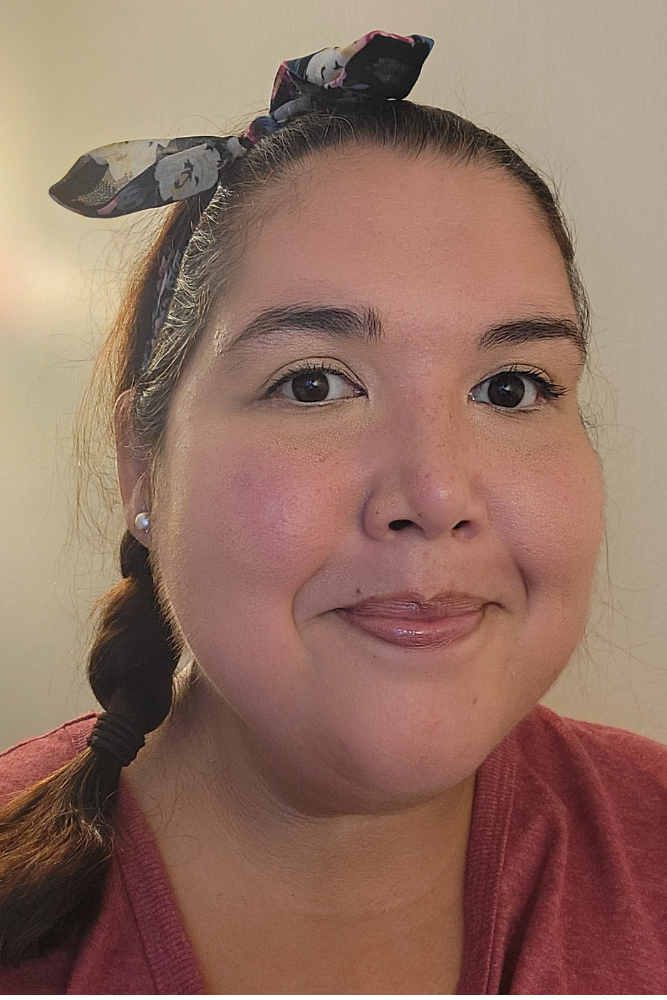Counseling Providers
Our providers are experienced in working through your struggles to help enrich people’s lives and relationships through specific and proven techniques.

Megan Rosecrans
Psy.D. LCP, CAGCS
Licensed Clinical Health Psychologist
Certified Advanced Grief Counseling Specialist

Matthew Fleming
Ph.D. LCP
Licensed Clinical Psychologist

Brianna Kassel
M.A. LCPC
Licensed Clinical Professional Counselor
ADHD-Certified Clinical Services Provider

Samantha McAdams
M.A.
Mental Health Therapist
Child and Adolescent Therapist
Licensed Professional Counselor (pending)

Maggie Slavich
Psy. D.
Licensed Clinical Psychologist

Mental Health Practicum Student

Megan Rosecrans Psy.D. LCP, CAGCS
Licensed Clinical Health Psychologist
Certified Advanced Grief Counseling Specialist
Megan Rosecrans Psy.D. LCP received her doctoral degree from the Illinois School of Professional Psychology with a concentration in Health Psychology. Dr. Rosecrans consults with bariatric surgical teams to provide psychological support for patients both pre and post surgery. Dr. Rosecrans specializes in pre-surgical bariatric assessment and spinal stimulator evaluations. Additionally, Dr. Rosecrans offers biofeedback and hypnotherapy treatment options as part of a comprehensive treatment strategy. Dr. Rosecrans uses empirically-supported treatments and a collaborative, directive, goal-oriented, supportive, approach for individual therapy. A customized treatment strategy is designed for the specific needs of each patient.
Dr. Rosecrans’ Approach to Therapy
Therapy can be scary as we are knowingly going to talk about topics that are uncomfortable. It takes strength to recognize and admit we need help, and then to open up about the discomfort we feel. Therapy is a safe space to explore these uncomfortable emotions, thoughts, behaviors, pasts, and relationships without judgement, and feeling like you are being heard. Therapy is designed to help you learn new ways to approach difficult experiences and learn tools to aid in coping with the discomfort you feel.
It is important for me to make therapy a safe and collaborative process. You are your own expert in life, and I am here to help you in finding the right tools that will work for you. I use a supportive, directive, problem-solving style, applying empirically supported techniques. I approach treatment using the biopsychosocial model and Existential therapies, which allows us to explore the interaction between varying aspects of our lives and how they affect our mental health. A better understanding of ourselves helps promote the change we strive for.
Specializes In: Depression, Anxiety, Panic, Mood Disorders, Adult ADHD, Bariatric Surgery Behavioral Changes, Weight Loss, Binge Eating Disorder, Chronic Pain and Pain Management
Professional Memberships: Illinois Psychological Association, Midwest Pain Society, The Obesity Society, National Register of Health Service Psychologists
Certifications: Certification of Advanced Clinical Hypnosis from the American Society of Clinical Hypnosis (ASCH) Relaxation, Meditation, and Mindfulness Certification from Roosevelt University Stress Institute

Matthew Fleming Ph.D. LCP
Licensed Clinical Psychologist
Matthew Fleming Ph.D. LPC received his Doctorate in Clinical Psychology from Northern Illinois University, and his Master’s Degree from Illinois State University. He earned his Bachelor’s degree from Boston University. He is native to Illinois, but has also lived in Alabama, South Carolina, Kentucky, Massachusetts, and Belgium. His experiences living abroad have helped him work with a variety of different cultural backgrounds. He is also familiar with the experience of stress from relocating and starting new jobs.
Dr. Fleming is fluent in French, and he added he could conduct therapy in French “as long as the patient does not mind his poor accent and grammar.” In his free time, Dr. Fleming likes to bike, play guitar, play video games, do wood carving, draw, and spend time with his wife and three children.
Dr. Fleming’s Approach to Therapy:
People seek therapy for a variety of reasons, and can range from mild relationship difficulties to more severe problems that affect their ability to work, love, and enjoy life. Although I use empirically-supported techniques, I do not believe in “cookie-cutter” approaches. In collaboration with my clients, I work to tailor interventions that are consistent with my clients’ goals and values. There is no one size fits all approach, but I draw most strongly on mindfulness-enhanced cognitive behavioral therapy. I teach people to see the connections between situations, thoughts, behaviors, and emotions. In therapy I try to get clients to become more focused on the present and help them to better cope with and experience unpleasant feelings that life inevitably brings. This helps them to both better deal with their problems in the present and bounce back better in the future if they have setbacks or relapses.
In therapy, individuals may want to address general feelings of anxiety and worries, panic attacks, specific fears, social anxiety, fear or discomfort speaking in front of others, or specific situational fears or excessive fears of animals, insects, or other things. Some people may wish to address specific intrusive thoughts and unwanted behaviors that they have to engage in despite the disruptions these behaviors cause in their lives.
Depression has been called “the common” cold of mental illness because so many people suffer from it at one point or another in life, but this does not make it any easier to experience. Depression can adversely affect health, work, school, relationships, and overall quality of life in those who experience it. With evidence-based approaches, I help people to reduce, manage, and cope with stress and anxiety and better manage those situations and circumstances that may trigger unpleasant of anxiety, sadness, or excessive anger.
Anger in itself, is not a bad thing. Anger only becomes a problem if it is excessive or leads to problematic behaviors, work difficulties, relationship issues, legal issues, or health related problems. I teach clients skills to better manage the circumstances and thoughts that lead to problematic anger. Relaxation training, meditation, mindfulness exercises, assertive communication training, and other techniques are used to help clients successfully navigation situations that have historically been triggers problematic anger. Many of these same skills can be used to address other emotions including but not limited to fear, sadness, shame, and guilt.
Specializes In: Anxiety, Panic, Social Phobia, OCD, ADHD, Depression, Addiction and Substance Abuse, Insomnia, Work Stress, Grief, Marriage and Relationship difficulties, Anger Management and Anger-related issues, Expatriation/Repatriation Adjustment in adults and teens.

Brianna Kassel M.A. LCPC
Licensed Clinical Professional Counselor
ADHD-Certified Clinical Services Provider
Brianna graduated with a Master’s Degree in Clinical Mental Health Counseling from Northwestern University in 2022. She received her Bachelor’s Degree in Psychology and a Minor in Human Development and Family Sciences from the University of Missouri in 2020. She received a Multicultural Certification upon graduation. In her undergraduate program, she volunteered with the Missouri Crisis Line and Suicide Hotline, and had an internship with at-risk children at Rainbow House in Columbia, MO. She has some ABA background as a behavior
technician for children on the spectrum.
Brianna works with adolescents (age 14+) and adults. She specializes in anxiety, depression, relationship difficulties, communication, work/education issues, and self-harm. She conducts Bariatric and Spinal Cord Stimulator Evaluations. Her therapeutic approach is a mix of psychodynamic, CBT, and person-centered therapeutic approaches. Brianna uses techniques such as: harm-reduction, mindfulness, narrative therapy, exposure and response prevention, and psychoeducation. Brianna is experienced with a wide variety of client experiences and provides a safe space for clients to share their stories.
Brianna’s Approach to Therapy
I believe that therapy is important and therefore I believe client collaboration is essential. I approach therapy with the mindset that the client is in charge of their therapy and the direction that it goes in. From the initial session, creating a diagnosis and treatment plan, and later sessions the client’s will have a say in the discussions and their treatment. I believe the client-therapist alliance are essential in order to build trust and a collaborative environment. This is why I tend to take a person-centered therapy approach as one of my primary methods for therapy.
It is essential to me that my clients feel safe and comfortable in sessions, and feel that way when leaving my office afterwards. I accept clients from any and all backgrounds and identities as Rosecrans & Associates is a participant and practitioner of Open to All. Therapy is important to me and I want to be able to help anyone in need who is willing to take the first step and dive into therapy with me.
Throughout my work with clients, I hope that they can start their journey of self-exploration and find compassion and acceptance in their lives. Therapy will be done using scientific and evidence-based therapy approaches and theories. My goal for every client is to feel better about their situation that brought them to therapy, and to learn more about themselves along the way. I strive to give my clients an experience that does not make them feel as though they need to fit into a specific mold, but can explore themselves and work towards their active goals while maintaining their values and beliefs. I cater my therapy around what you believe is helping and is effective at tackling any mental health concerns. Call the office or schedule an appointment to start your journey! I look forward to working with you.
Specializes In: Psychodynamic therapy, Mindfulness, and Person-Centered therapy.

Samantha McAdams M.A.
Mental Health Therapist
Child and Adolescent Therapist
Licensed Professional Counselor (pending)
As a therapist with almost 10 years of experience, I enjoy working with those who feel stuck—whether in patterns of self-doubt, the weight of past trauma, or the overwhelming pressure of life’s expectations. They may struggle with anxiety, depression, identity, or shame, feeling disconnected from their own voice and unsure of how to move forward. Deep down, they want clarity, healing, and the ability to trust themselves. They seek a space where they can be seen, heard, and understood without judgment, where they can explore their emotions safely and begin to rewrite their story.
Samantha’s Approach to Therapy:
I offer a client-centered, trauma-informed approach tailored to your needs. Using ACT, CBT, TF-CBT, DBT, and IFS, I help clients navigate PTSD, anxiety, depression, identity exploration, disordered eating, and generational trauma. Together, we create a space where shame loses its power, allowing you to reclaim your voice, develop self-compassion, and build lasting resilience.
Healing isn’t about fixing what’s “broken”—because you are not broken. It’s about untangling the narratives that keep you feeling small or unworthy. I will believe you, hold space for your pain, and celebrate your victories. You don’t have to do this alone. If you’re ready for the next step, I’d be honored to walk alongside you.

Maggie Slavich Psy. d.
Licensed Clinical Psychologist
Maggie Slavich, Psy.D. received her Doctorate in Clinical Psychology from the Illinois School of Professional Psychology at Argosy University, Schaumburg. She earned her Bachelor’s Degree in Psychology from Albion College. She is a proud Michigander who has lived in Illinois since 2010.
Dr. Slavich enjoys playing guitar and singing, attending concerts and comedy shows, going to movies, visiting family in Michigan and spending time with her husband and daughter. She has two cats, Brooks and Penny, and a Cane Corso, Marla Hooch. Her greatest life achievement is appearing in the Awkward Family Photos calendars and Totally 80’s Board Game.
Dr. Slavich’s Approach to Therapy:
I believe that the relationship I form with my clients and their families is the most important part of the therapeutic process. I take a client-centered approach to therapy and utilize other therapeutic techniques as needed, but in a more informal way than “traditional” therapy. I love “info dumps” and hearing about your passions. I am authentic and down-to-earth and want my clients to feel comfortable unmasking and being their authentic selves as well. I believe there is room for humor in therapy and that it is a central feature of my approach and personality. I am able to connect to anyone I meet and find value in every client I encounter. You will find that I am extremely non-judgmental and that there is not anything you can say that I will find weird or will make me dislike you and stop caring about you. I am passionate about working with diverse populations. I do not give advice that I would not follow myself and am a believer in “practicing what I preach.” I am here to meet you where you are and to support you. I also run a support group for adults with Autism Level 1, and the group is always open to new members.
I have worked in a therapeutic day school in the past, so I am able to support clients and advocate for their needs when it comes to school accommodations through things like 504 plans and IEPs. It is important to me that I work collaboratively with other providers such as schools, psychiatrists, occupational therapists, and hospital programs to best support your needs.
Specializes In: Autism Level 1 across the lifespan, PANS/ PANDAS, and OCD.

Lillian Lubowa Kyobe
Mental Health Practicum Student
Lillian is currently pursuing her Master’s in Clinical Mental Health Counseling at Northwestern University, Illinois. She holds a Bachelor’s degree from Makerere University, Kampala, Uganda, and a Master’s degree in Organizational Leadership from Regent University, Virginia.
With over 15 years of experience managing medical practices both in Uganda and the United States, Lillian found her greatest fulfilment in the hope and smiles she brought to patients and staff alike, rather than in the management tasks themselves. Driven by her passion for supporting others on their path to wellness, she made the decision to move from management to counseling. The CACREP-accredited program at Northwestern University, her membership in the American Mental Health Counselors Association, and supervision by a highly experienced Licensed Clinical Health Psychologist provide her with a strong foundation. After graduation, Lillian intends to become a Licensed Clinical Mental Health Counselor in Illinois, confident in her ability to help clients navigate challenges and achieve optimal well-being. Lillian is fluent in Luganda and can conduct therapy in this language.
Lillian’s Approach to Therapy:
I believe that counseling empowers individuals, families and groups to achieve mental health, wellness, education and career goals, so they can lead fulfilling lives. Guided by this foundational belief and my personal values, I am committed to helping adults from diverse backgrounds and cultures reach their aspirations. Through collaboration and an integrative approach, I will support clients in gaining self-awareness, developing effective strategies and finding practical solutions to life’s challenges by utilizing appropriate diagnostic tools and develop treatment plans tailored to each client’s unique needs.
